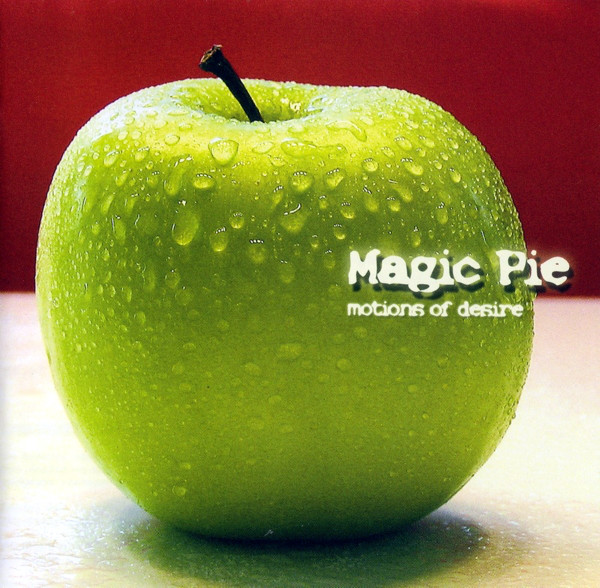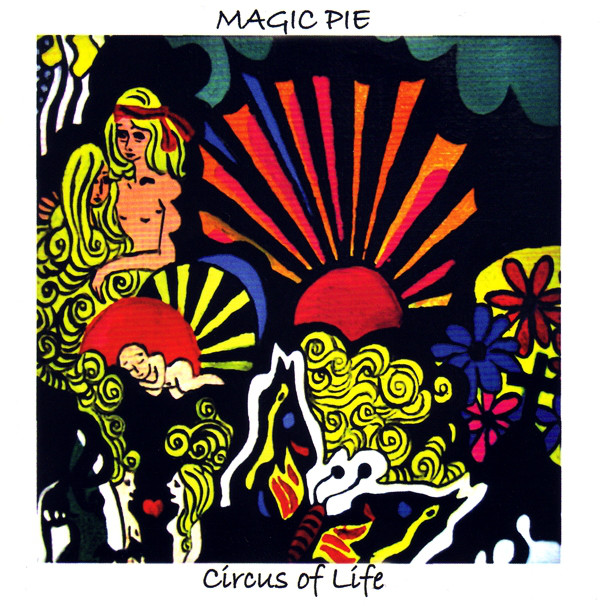
Exposé Online
What's old
Exposé print issues (1993-2011)
- 1 (October 1993)
- 2 (February 1994)
- 3 (May 1994)
- 4 (August 1994)
- 5 (October 1994)
- 6 (March 1995)
- 7 (July 1995)
- 8 (November 1995)
- 9 (March 1996)
- 10 (August 1996)
- 11 (February 1997)
- 12 (May 1997)
- 13 (October 1997)
- 14 (February 1998)
- 15 (July 1998)
- 16 (January 1999)
- 17 (April 1999)
- 18 (November 1999)
- 19 (May 2000)
- 20 (October 2000)
- 21 (March 2001)
- 22 (July 2001)
- 23 (December 2001)
- 24 (April 2002)
- 25 (September 2002)
- 26 (February 2003)
- 27 (August 2003)
- 28 (December 2003)
- 29 (April 2004)
- 30 (September 2004)
- 31 (March 2005)
- 32 (September 2005)
- 33 (May 2006)
- 34 (March 2007)
- 35 (January 2008)
- 36 (October 2008)
- 37 (July 2009)
- 38 (July 2010)
- 39 (Summer 2011)
Reviews
Magic Pie — Motions of Desire
(Karisma KAR101, 2005/2017, CD)
Magic Pie — Circus of Life
(Karisma KAR102, 2007/2017, CD)
Magic Pie — The Suffering Joy
(Karisma KAR103, 2011/2017, CD)
by Jon Davis, Published 2017-05-05



Following on Karisma’s release of King for a Day in 2015, the label has gone to Magic Pie’s back catalog and re-released the first three albums. In 2005 they put out Motions of Desire, and right out of the gate they presented a fully-realized statement of what they’re about. “Change” is a 20-minute epic of several sections, some of which resemble a more poppish Deep Purple, with heavy organ and rocking guitar; other parts are maybe like a more proggish Supertramp, with acoustic guitar and great melodies. Then there’s a section that’s kind of funky, but more in a 70s rock way than R&B — more James Gang than Ohio Players — and an interlude of elaborate vocal arrangements, almost like Gentle Giant. And while the final anthemic section is maybe a bit overdone, it’s a minor misstep in an impressive opus. That’s quite a bold statement for the opening of a debut album. The title track has a slight flavor of an 80s anthem, like a Big Country without the bagpipe melodies and with more keyboards. There are two more tracks topping the ten-minute mark, one of which is part of “Illusions & Reality,” a suite spanning three tracks. At 77 minutes, Motions of Desire is bit much to take in, and their fondness for dramatic melodies with massed vocal parts is over-indulged, but there are enough good parts to warrant a positive recommendation.
2007 brought Circus of Life, which also starts with an extended piece, the title suite, which is divided into five parts totalling 47 minutes. The beginning is subdued, with children’s voices, acoustic guitars, Mellotron flutes, and a soft vocal part. Other sections provide instrumental workouts, reflective philosophical singing, heavy riffs, squiggly synth solos, polyphonic vocal parts, and (or course) a big anthem, which luckily doesn’t kick in until about 30 minutes in. Aside from the title suite, there are two standalone tracks, and the first one “Pointless Masquerade” is my favorite tune on the album. Its nine minutes feature a fair amount of variety, and some really good melodies, along with a sitar sound — something that hadn’t previously appeared anywhere. There are fewer of the overblown anthem sections, and on the whole, Circus of Life is a small but noticeable step up from the debut.
Next came The Suffering Joy, in 2011. All of the chief factors of the previous albums are intact, though in this case, more of the same is accompanied by further refinement, with the writing good enough to not seem redundant. This one features another suite (“A Life’s Work”) and four hefty tracks at or above the nine minute mark. The one short track, “Endless Ocean,” is actually a highlight, a jaunty mostly-acoustic piece with acoustic guitar, piano, and Mellotron flutes backing the vocal parts. Some guest female vocals provide more variety on a couple of tracks. If pressed, I might give The Suffering Joy a slight edge over Circus of Life, but they’re both solid pieces of work.
The defining features of the Magic Pie sound are the provided by the keyboards, guitars, and vocals. Gilbert Marshall favors the classic tones of Hammond organ, piano, Mellotron, and analog-sounding synthesizers. I particularly like the prominent organ parts. The guitar parts by Kim Stenberg are melodic, fluid, flashy, sometimes prone to metal-style rhythm parts, but are not so dominant that they make this a prog metal band. Finally, we have the vocals. Magic Pie has always gone the route of having two co-lead singers — Eirik Hanssen joined on the first two by Allen Olsen and later by Eiríkur Hauksson — along with backing vocals from Marshall and Stenberg. All of the voices are strong and expressive, meticulously arranged and able to contribute in both the quiet sections and the big climaxes. As I’ve said, I find the big dramatic sections a bit overdone, but I know there are a lot of listeners who love this kind of thing. In some ways, Magic Pie could be regarded as a neo-prog band akin to IQ, Pendragon, or Arena, but their fondness for 70s rock riffs gives them a different flavor that I really enjoy. I’m not sure I would recommend listening to all three of these back-to-back as I did (several times!) for this review, but any of them should provide good listening for fans of finely crafted prog-inflected rock of the melodic variety.
Filed under: Reissues, 2017 releases, 2005 recordings, 2007 recordings, 2011 recordings
Related artist(s): Magic Pie
What's new
These are the most recent changes made to artists, releases, and articles.
- Review: Sterbus - Black and Gold
Published 2026-03-03 - Release: Janel Leppin's Ensemble Volcanic Ash - Pluto in Aquarius
Updated 2026-03-02 15:06:51 - Release: Janel Leppin - Slowly Melting
Updated 2026-03-02 15:05:27 - Release: Alister Spence - Always Ever
Updated 2026-03-02 15:04:11 - Release: Let Spin - I Am Alien
Updated 2026-03-02 15:02:41 - Review: Falter Bramnk - Vinyland Odyssee
Published 2026-03-02 - Review: Exit - Dove Va la Tua Strada?
Published 2026-03-01 - Review: Steve Tibbetts - Close
Published 2026-02-28 - Release: We Stood Like Kings - Pinocchio
Updated 2026-02-27 19:24:02 - Release: Stephen Grew - Pianoply
Updated 2026-02-27 19:20:11 - Release: Thierry Zaboitzeff - Artefacts
Updated 2026-02-27 00:16:46 - Review: Kevin Kastning - Codex I & Codex II
Published 2026-02-27 - Release: Zan Zone - The Rock Is Still Rollin'
Updated 2026-02-26 23:26:09 - Release: The Leemoo Gang - A Family Business
Updated 2026-02-26 23:07:29 - Release: Ciolkowska - Bomba Nastoyashchego
Updated 2026-02-26 13:08:55 - Review: Immensity Crumb - Chamber Music for Sleeping Giants
Published 2026-02-26 - Release: The Gatekeepers - Diary of a Teenage Prophet
Updated 2026-02-25 15:55:58 - Listen and discover: Mordecai Smyth will not break your back
Published 2026-02-25 - Review: Mars Lasar - Grand Canyon
Published 2026-02-25
